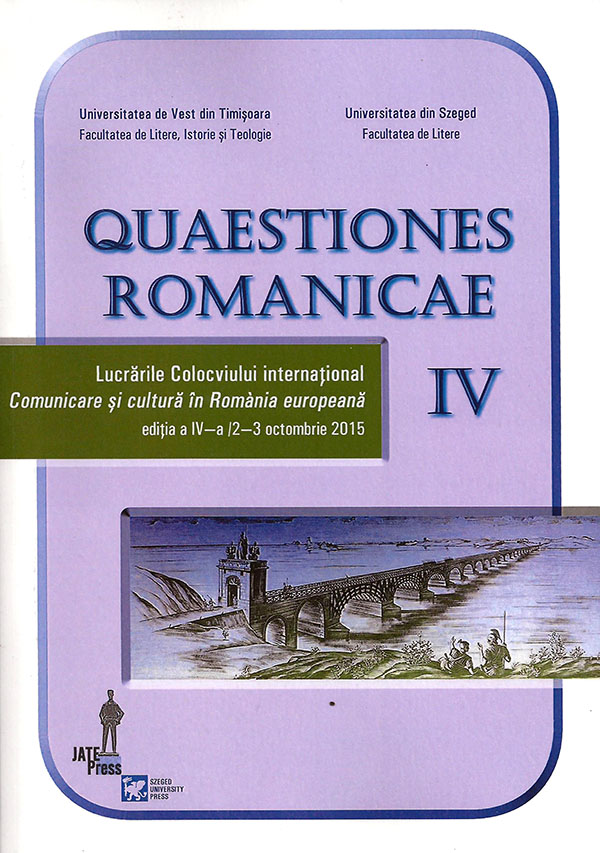Eduardo De Filippo, de la autor dialectal la dramaturg internaţional
Abstract: (Eduardo De Filippo: from the Local Color Playwright to the International Dramatist). Already by the turn of the 19th century, Naples drama had emphatically claimed its top rank in the Italian national theater hierarchy; whereas during the years to come ever more important authors’ names would ascend in the realm of the stage: Raffaele Viviani, Roberto Bracco, and – last but not least – Eduardo De Filippo (1900 – 1984). As an illegitimate son of Eduardo Scarpetta, the great actor of Naples, young Eduardo made quite an early début, both as a comedian and as a playwright. Together with his siblings, Titina and Peppino De Filippo, he evolved rapidly building up a showman career after the latest fashion in Naples then. Although as an artist he had been cast in the comic spirit of dialectal Naples drama – a keen connoisseur of his audience, but also keen on taking the dramatic text to spaces not yet explored at that time – Eduardo detached himself gradually, with each step in his career, often with each one of his new plays, from that tradition which had consecrated him. Thus he managed to put in practice his innovations: the drama of public debate and display of the moment’s very topical issues, the kind of drama writing by the fine frontier between bitter laughing and (ir)repressible crying, a linguistic hybrid between the dialect of Naples – the linguistic vehicle of all his characters – and the unifying lingua franca of the entire Italy. His national success would soon turn international, so that today, except for Pirandello, the most representative Italian playwright all over the world stages is Eduardo De Filippo.
Keywords: theater, comedy, Napoli, innovation, tradition.
Rezumat: La sfârşitul secolului al XIX-lea teatrul napoletan deja îşi revendicase cu fermitate locul în cadrul panoramei teatrale italiene, iar anii următori aveau să impună scenelor nume dintre cele mai importante: Raffaele Viviani, Roberto Bracco, dar, mai ales, Eduardo De Filippo (1900-1984). Fiul nelegitim al marelui actor napoletan Eduardo Scarpetta, tânărul Eduardo debutează devreme atât ca actor comic, cât şi ca autor teatral. Alături de fraţii săi, Titina şi Peppino De Filippo, parcurge cu repeziciune etapele edificării trainice a unui nou tip de om de teatru napoletan. Deşi s-a format în cadrul teatrului comic şi dialectal napoletan, Eduardo - rafinat cunoscător al publicului său, dar şi dorind să aducă textul dramatic în zone ce nu îi erau încă familiare – se desprinde treptat, cu fiecare etapă din creaţia sa, uneori chiar şi cu fiecare piesă, de tradiţia care îl consacrase şi îşi pune în practică propunerile inovatoare: teatrul ca spaţiu în care sunt puse la zid ţi în dezbaterea publică cele mai arzătoare problematici ale vremii, o scriere dramaturgică aflată la graniţa subţire dintre râsetul amar şi plânsul abia reţinut, o limbă hibridă, născută din dialectul napoletan – vehicul lingvistic al tuturor personajelor sale, şi o vorbire inteligibilă la nivel naţional. Foarte repede succesul naţional avea să devină internaţional, astfel că astăzi, cu excepţia lui Pirandello, Eduardo De Filippo este autorul italian cel mai reprezentat pe scenele din lumea întreagă.
Cuvinte-cheie: teatru, comedie, Napoli, inovaţie, tradiţie.
